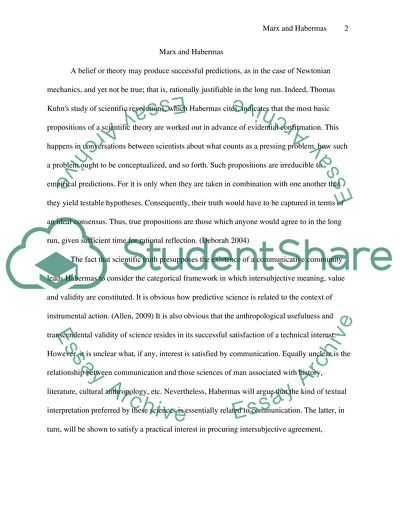Cite this document
(“Marx and Habermas Research Paper Example | Topics and Well Written Essays - 2250 words”, n.d.)
Retrieved from https://studentshare.org/family-consumer-science/1418615-marx-and-habermas
Retrieved from https://studentshare.org/family-consumer-science/1418615-marx-and-habermas
(Marx and Habermas Research Paper Example | Topics and Well Written Essays - 2250 Words)
https://studentshare.org/family-consumer-science/1418615-marx-and-habermas.
https://studentshare.org/family-consumer-science/1418615-marx-and-habermas.
“Marx and Habermas Research Paper Example | Topics and Well Written Essays - 2250 Words”, n.d. https://studentshare.org/family-consumer-science/1418615-marx-and-habermas.


